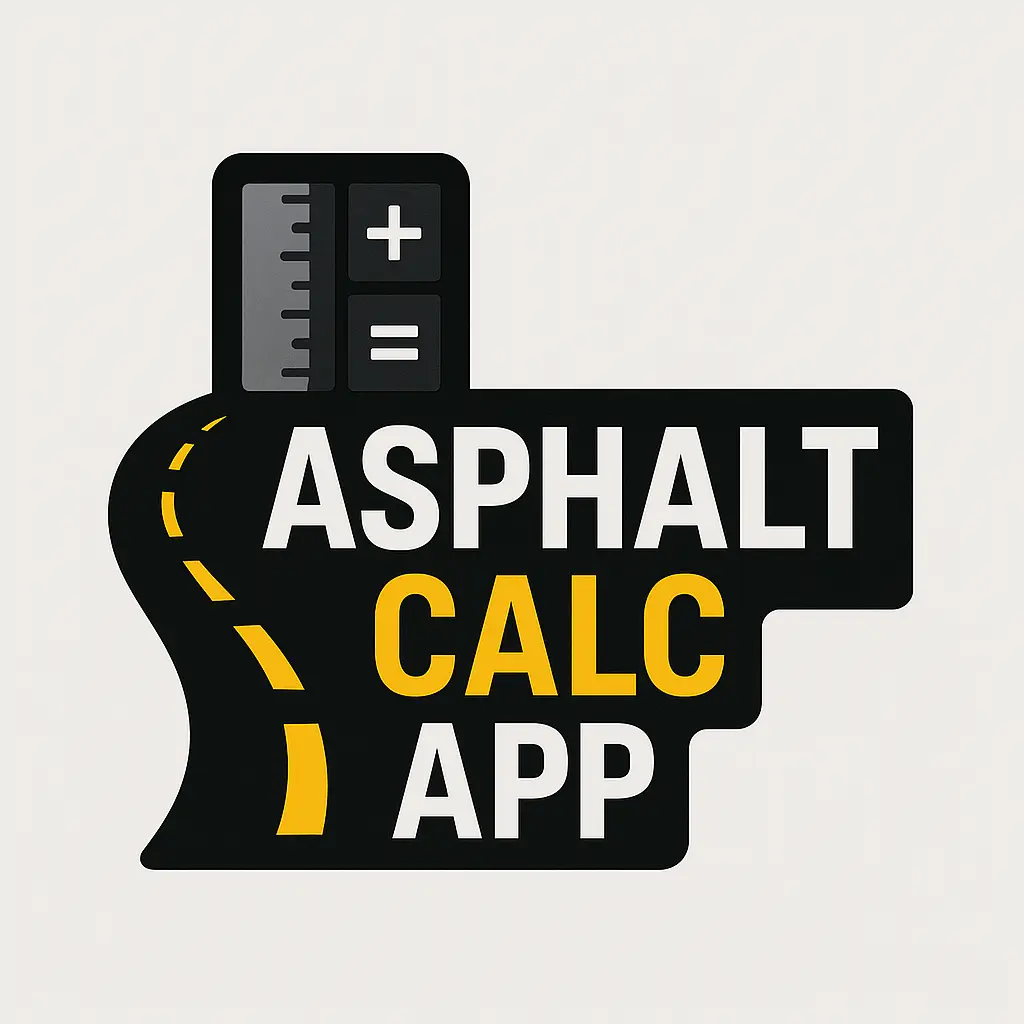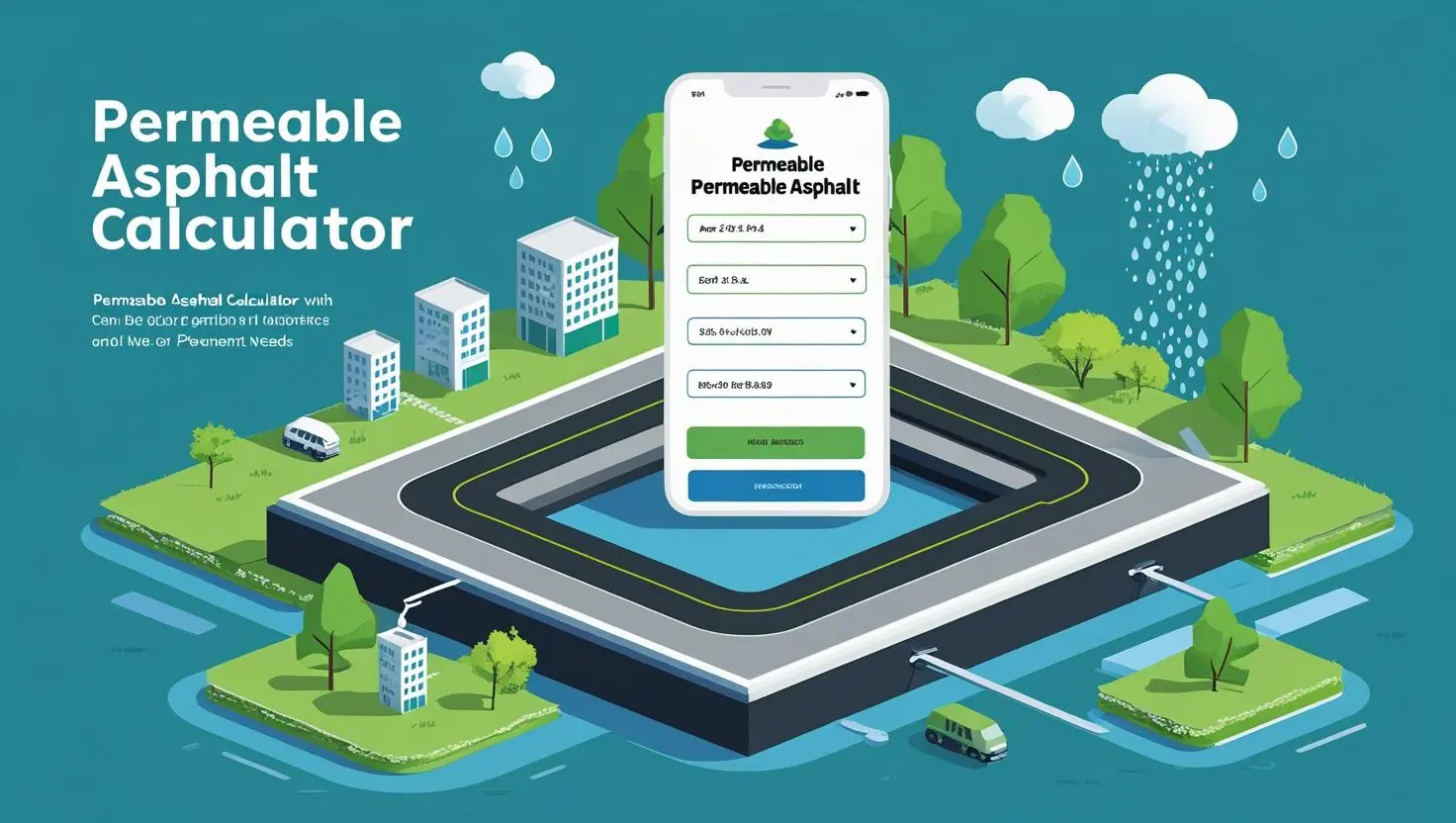Introduction
Stormwater runoff, urban flooding, and heat islands are becoming common concerns in modern city planning. That’s where permeable asphalt steps in. Also known as porous or open-graded asphalt, this eco-friendly paving material allows water to drain through the pavement, reducing runoff and promoting groundwater recharge.
If you’re considering permeable paving for a driveway, walkway, or parking lot, an essential first step is using a permeable asphalt calculator. It helps you determine how much material you need, estimate project costs, and plan smarter.
In this article, we’ll walk you through how a permeable asphalt calculator works, why accurate estimation matters, how it differs from regular asphalt calculations, and how to avoid common mistakes—all while staying environmentally responsible.
1. What Is Permeable Asphalt?
Permeable asphalt is a specially designed pavement mix that contains fewer fine aggregates, allowing water to pass through the surface and into the layers below. It’s ideal for sustainable infrastructure projects like:
-
Residential driveways
-
Walkways and bike paths
-
Commercial parking lots
-
Urban drainage areas
It helps keep rainfall from running off and makes drainage better without making the material less strong.
2. Benefits of Permeable Asphalt
-
✅ Reduces stormwater runoff
-
✅ Minimizes the need for complex drainage systems
-
✅ Supports LEED certification for green building
-
✅ Reduces the risk of standing water and hydroplaning
-
✅ Improves air quality and reduces urban heat
Did you know? Permeable asphalt can absorb up to 80% of rainfall, making it one of the best eco-friendly paving options.
3. What Is a Permeable Asphalt Calculator?
A permeable asphalt calculator is a tool that helps you estimate the amount of porous asphalt mix you need based on project dimensions, thickness, and depth of base/sub-base layers. It can also help you estimate:
-
Volume of asphalt (in cubic feet or yards)
-
Weight (in tons or pounds)
-
Cost (based on price per ton)
Use our free asphalt calculator tool to get quick results.
4. Why You Need Accurate Estimations
Incorrect calculations can:
-
🛑 Delay your project
-
💰 Lead to over-ordering or under-ordering
-
🌱 Waste materials and hurt environmental goals
-
🧱 Compromise pavement performance
Especially with permeable asphalt, base layers (like stone reservoirs) must be included in calculations for accurate drainage performance.
5. How Permeable Asphalt Differs from Regular Asphalt
| Feature | Regular Asphalt | Permeable Asphalt |
|---|---|---|
| Water Drainage | Impermeable | Allows water infiltration |
| Aggregate Size | Fine and compact | Coarse and open-graded |
| Application Areas | Roads, highways | Driveways, low-traffic areas |
| Environmental Impact | Higher runoff | Eco-friendly, reduces flooding |
| Thickness Requirements | 2–3 inches | 3–5 inches (plus stone base) |
These differences affect how much material you need and how you calculate it.
6. Using the Permeable Asphalt Calculator – Step-by-Step
📐 Inputs Required:
-
Length of the area (in feet)
-
Width of the area (in feet)
-
Depth of the asphalt layer (in inches)
-
Depth of base/reservoir layer (in inches, if included)
-
Density of permeable mix (typically ~110–125 lb/ft³)
🧮 Formula (Volume to Weight):
Need help? Use our blacktop calculator for permeable or standard asphalt.
7. Example Calculation for a Driveway
Let’s say your driveway is:
-
30 feet long
-
12 feet wide
-
4 inches thick
Using 120 lb/ft³ as asphalt density:
📊 Calculation:
You need 7.2 tons of permeable asphalt mix.
Add an extra 5-10% for waste and compaction.
8. Important Factors to Consider
-
Soil permeability – Ensure the subgrade can absorb water.
-
Slope & grading – Flat surfaces are better for permeable systems.
-
Climate – Works best in moderate rainfall regions.
-
Traffic load – Best for low to medium traffic.
Consult your local codes and an engineer if you’re building in flood-prone areas.
9. Tips to Save on Cost and Material
-
✅ Order in bulk for a lower cost per ton.
-
✅ Use recycled aggregate when possible.
-
✅ Avoid over-compaction—preserve permeability.
-
✅ Maintain surface cleanliness to prevent clogging.
10. FAQs
🔹 How do I use a permeable asphalt calculator?
Type in the length, breadth, and thickness of the area you want to pave. The calculator will estimate volume and convert it to weight (tons or pounds).
🔹 How thick should permeable asphalt be?
Typically 3 to 5 inches thick, depending on use. You’ll also need 6–18 inches of base material for drainage.
🔹 How much does permeable asphalt cost?
Costs vary, but the average material price ranges from $100–$150 per ton. Installation costs can raise total expenses to $5–$12 per sq. ft.
🔹 Where can I buy permeable asphalt?
Many suppliers offer eco-friendly mixes. Check with local asphalt companies or use directories like Angi.com or HomeAdvisor.
🔹 Is permeable asphalt suitable for driveways?
Yes! It’s perfect for residential driveways, especially in areas with frequent rain or poor drainage.
11. Final Thoughts
The permeable asphalt calculator is more than a helpful tool—it’s a gateway to smarter, sustainable paving. Whether you’re a homeowner upgrading your driveway or a contractor managing a parking lot, precise estimation means better planning, cost-efficiency, and environmental impact.
Don’t just pave—pave responsibly. Use tools like the AsphaltCalcApp calculator to guide your eco-friendly project from concept to completion.

